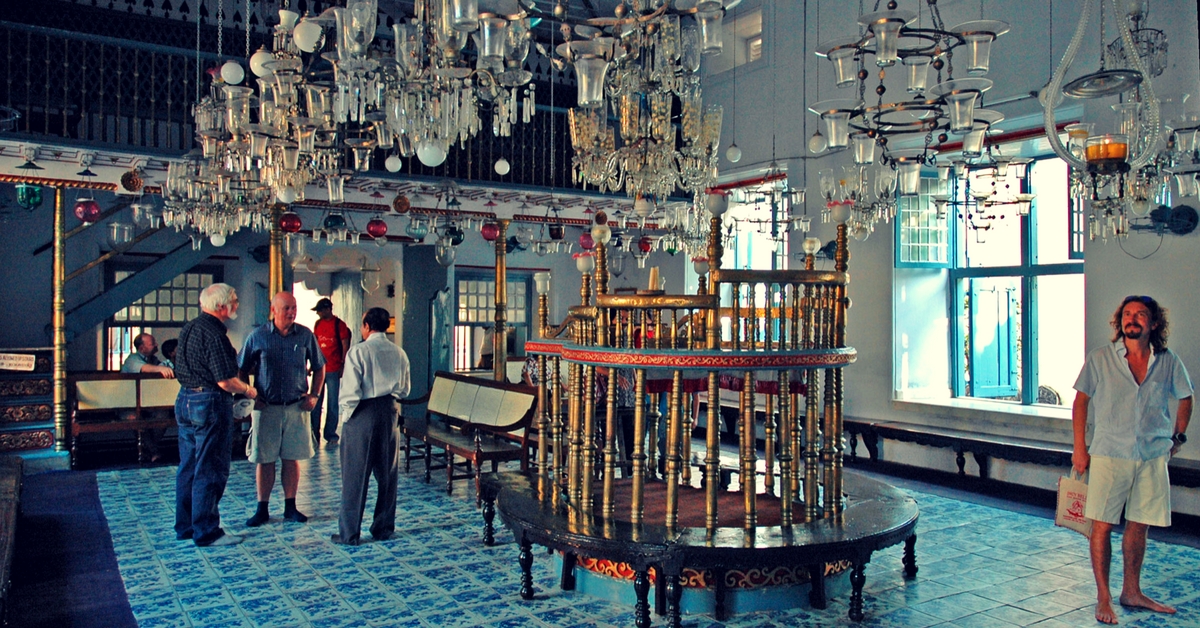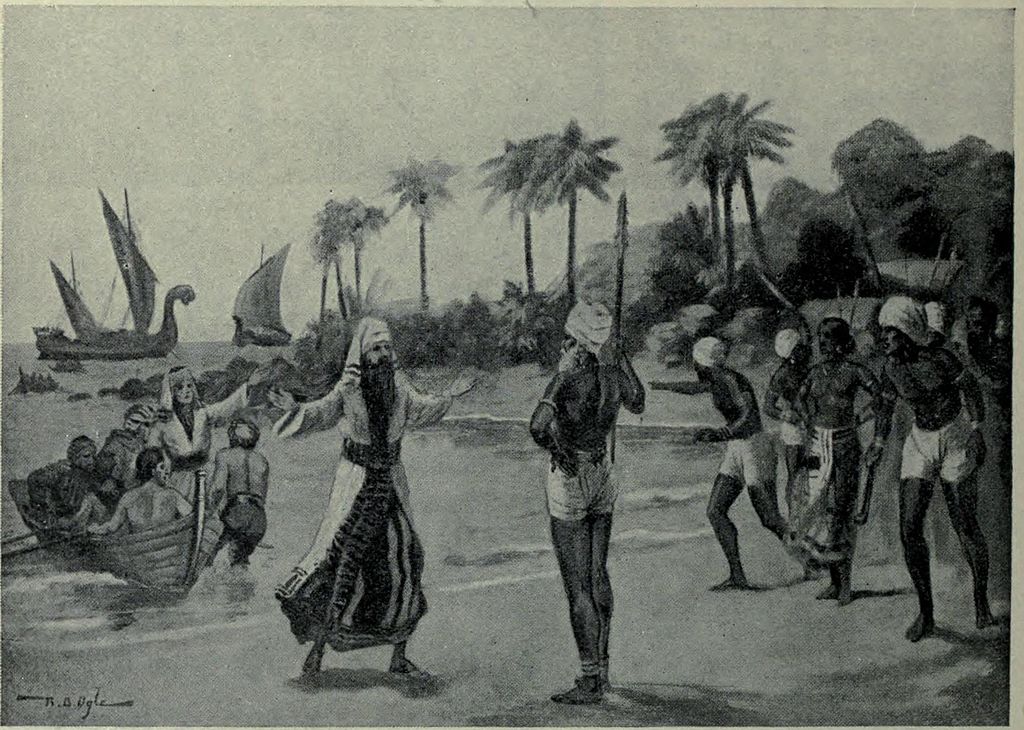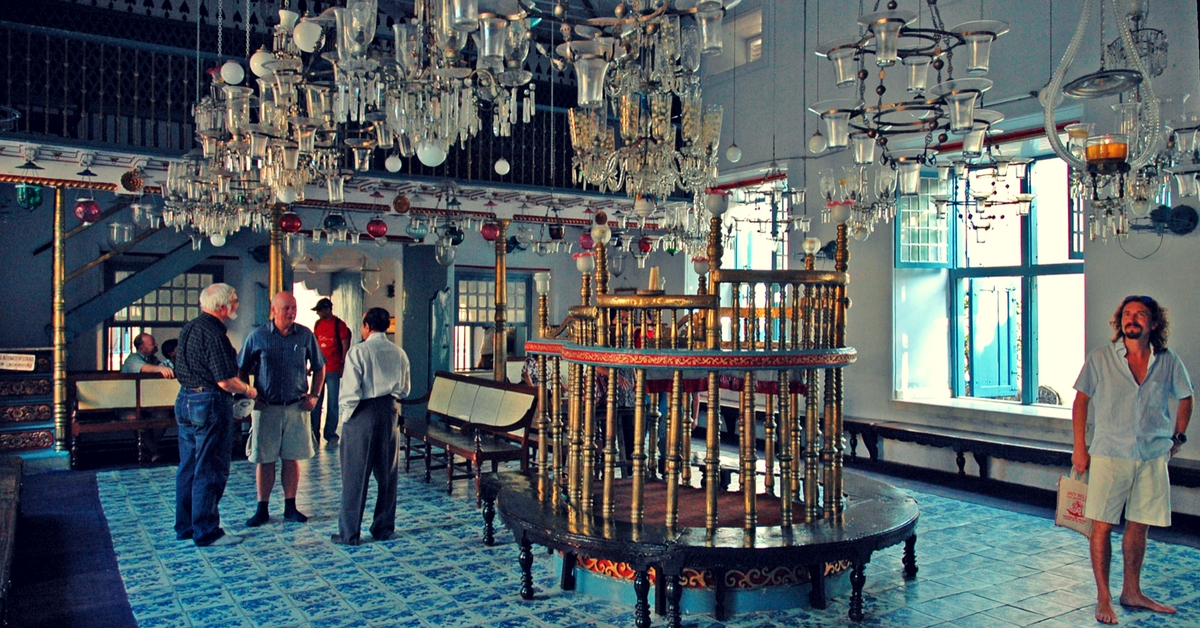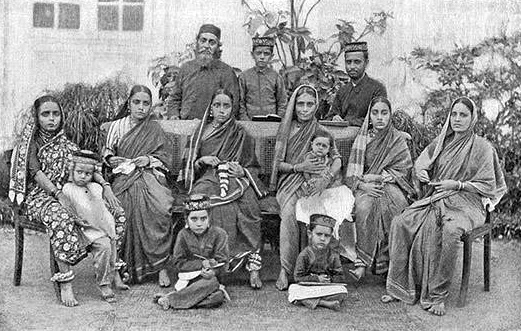The Jewish Connect: Tracing This 2000-Year-Old Lineage in India
An interesting aspect is that not only did they manage to keep their identity as the centuries flew past, but they have also been accepting of local cultural influences.

The visit of Israeli Prime Minister Benjamin Netanyahu to India is being seen as an important move towards building better ties between both countries.
It is especially crucial for the tightly integrated group of Jews who chose to stay back in India while thousands migrated back to their home state at the time of its creation.
Having faced severe persecution and discrimination throughout the history, India was probably one of the only nations in the world that offered a safe haven to Jewish immigrants and has welcomed them with open arms time and again.
Believed to be one of the first foreign religions to have surfaced in India in its recorded history, one can trace the Jewish lineage in the subcontinent to almost 2,000 years back in time.

Unknown to many, three prominent factions within the Jewish community—the Cochin Jews, the Bene Israeli and the Baghdadi Jews—landed on Indian coasts at different points in time and continue to live in the country.
One cannot find a similar classification of Jews anywhere else in the world, which is solely constituted on the basis of geographical location and its origin of myths in the country.
It is supposed that the first group of traders arrived along the coasts of Kerala in 562 BCE, followed by many exiled immigrants who fled after the siege of Jerusalem sometime around 50 CE, where Chera king Cheraman Perumal cordially received them.
Not only does historical evidence prove that the community was bequeathed with an entire village to settle and flourish, but there is also evidence of Jews cohabiting harmoniously with local rulers and natives for almost a millennium.

The Jewish town and the famous synagogue in Kochi are some of the examples that bear the testimony of a time-tested heritage left behind by the community before the mass exodus to Israel.
On the other hand, Bene Israelis are believed to be the descendants of 14 survivors of a shipwreck that landed on the Konkan coast around 1600 to 1800 years ago. It is this faction which is synonymous with the timeless legend of the ten lost tribes of Israel.
You may also like: A Jewish Bakery Has Been Making Kolkata’s Favourite Cakes for Over 100 Years!
The third group is that of the Baghdadi Jews, who forayed into the country during the mid 18th and 19th century and went on to emerge as a strong entrepreneurial class during the British reign.
Most of the synagogues, kosher markets and ritualistic bathhouses prominent across Indian cities were made at the height of their prosperity.
An interesting aspect is that not only did they manage to keep their identity as the centuries flew past, but they have also been accepting of local cultural influences. This duality has come to define Indian Jews, as we know them today.

The cultural diffusion runs both ways though, thanks to the Indian-origin Jews in Israel. Influences are so deep-seated that many of them still speak Marathi and practice intrinsic Indian customs like that using a mangalsutra and henna during weddings and the use of camphor in synagogues.
You may also like: How an Auschwitz Survivor Helped India Get Israel’s Aid in the 1971 War
In fact, the towns of Dimona and Ashdod in Israel are often dubbed as ‘little India,’ where close to 80,000 Indian-origin Jews continue to practice traditions and customs that showcase a cultural confluence—unlike anything seen in the region.
At present, over five thousand people live and practice Judaism in India without any form of anti-Semitic persecution, as they had been freely doing so throughout the pages of Indian history.
Like this story? Or have something to share?
Write to us: [email protected]
Connect with us on Facebook and Twitter.
NEW: Click here to get positive news on WhatsApp!
This story made me
- 97
- 121
- 89
- 167
Tell Us More
We bring stories straight from the heart of India, to inspire millions and create a wave of impact. Our positive movement is growing bigger everyday, and we would love for you to join it.
Please contribute whatever you can, every little penny helps our team in bringing you more stories that support dreams and spread hope.



















